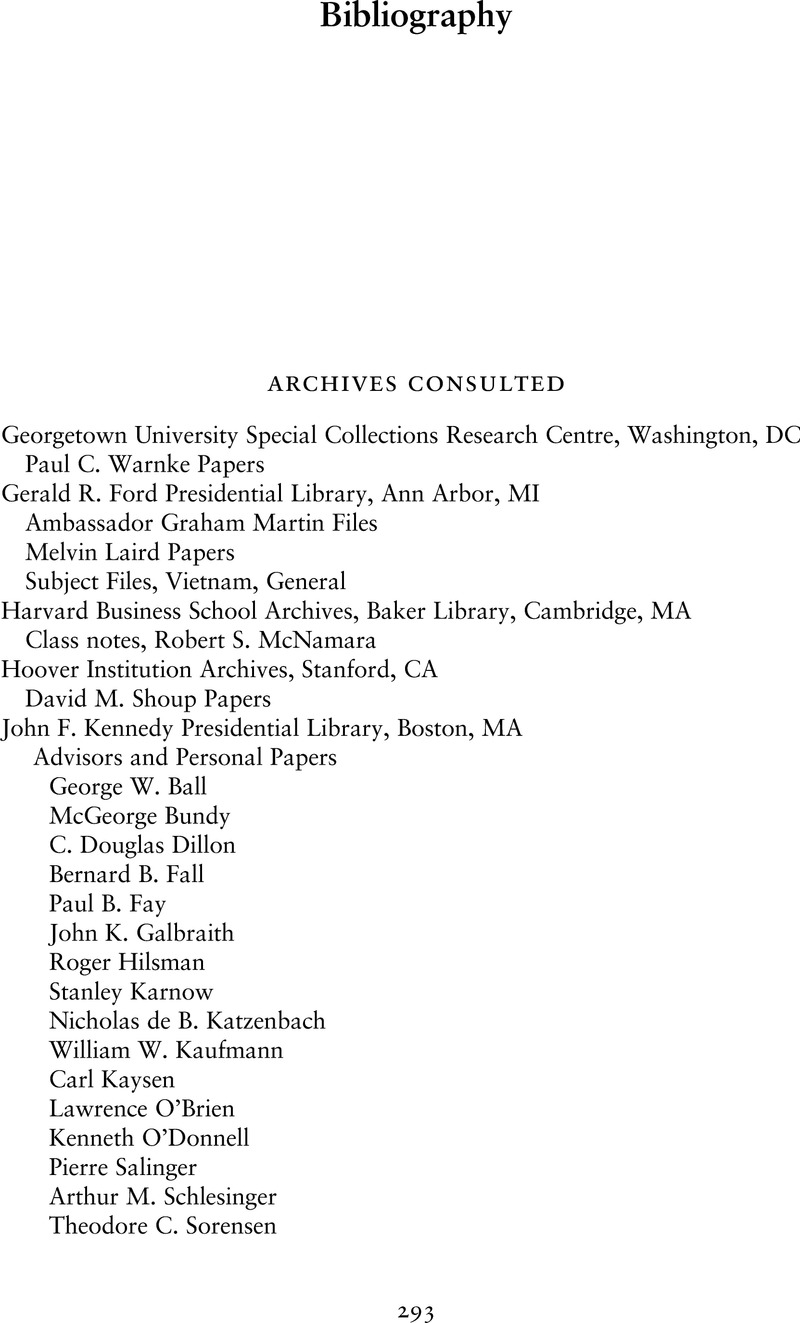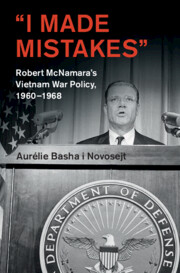Book contents
- “I Made Mistakes”
- Cambridge Studies in US Foreign Relations
- “I Made Mistakes”
- Copyright page
- Dedication
- Contents
- Figures
- Acknowledgments
- Abbreviations
- Introduction
- 1 The History of the Office of the Secretary of Defense, 1947–1961
- 2 Civilian Control
- 3 Continuity and Change
- 4 Taking Charge of Vietnam Policy
- 5 When Military Problems Become Economic Problems
- 6 The Fall of 1963
- 7 McNamara’s Transition into the Johnson Administration
- 8 Decisions, Indecisions, Visions and Revisions
- 9 McNamara in Crisis, 1966–1968
- Conclusion
- Appendix: Cast of Characters
- Endnotes
- Bibliography
- Index
- References
Bibliography
Published online by Cambridge University Press: 26 February 2019
- “I Made Mistakes”
- Cambridge Studies in US Foreign Relations
- “I Made Mistakes”
- Copyright page
- Dedication
- Contents
- Figures
- Acknowledgments
- Abbreviations
- Introduction
- 1 The History of the Office of the Secretary of Defense, 1947–1961
- 2 Civilian Control
- 3 Continuity and Change
- 4 Taking Charge of Vietnam Policy
- 5 When Military Problems Become Economic Problems
- 6 The Fall of 1963
- 7 McNamara’s Transition into the Johnson Administration
- 8 Decisions, Indecisions, Visions and Revisions
- 9 McNamara in Crisis, 1966–1968
- Conclusion
- Appendix: Cast of Characters
- Endnotes
- Bibliography
- Index
- References
Summary

- Type
- Chapter
- Information
- ‘I Made Mistakes’Robert McNamara's Vietnam War Policy, 1960–1968, pp. 293 - 316Publisher: Cambridge University PressPrint publication year: 2019

